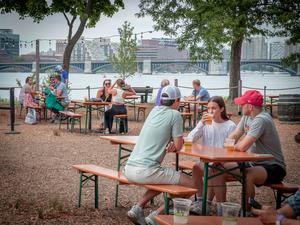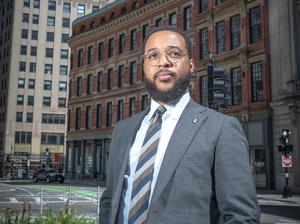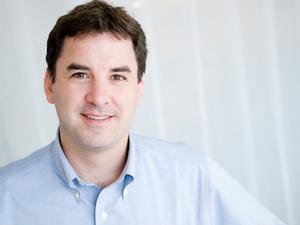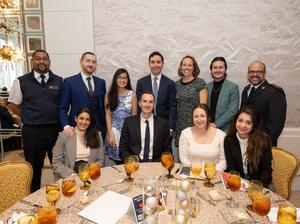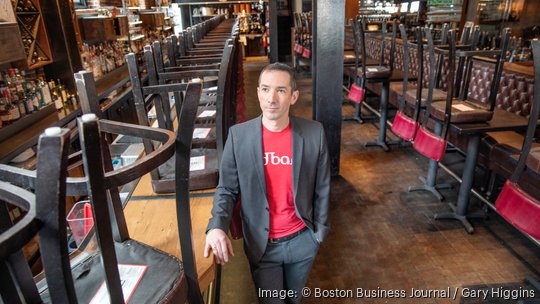
Nightlife directors are popping up around the world, with cities like London and Amsterdam hiring so-called “late-night czars” to improve their social scenes.
Last year, Segun Idowu, Boston’s chief of economic opportunity and inclusion, said the city intends to hire a late night czar of its own to focus on improving the vibrancy, inclusivity and accessibility of Boston’s social scene.
This week, a spokesperson for Idowu’s office confirmed someone has been hired for the job, which will officially be called the director of strategic initiatives. That person won't be announced until March, but we spoke to a number of local business owners about what the new hire ought to try and accomplish.
Finding the 'soul' in nightlife
“I definitely think that if Boston wants to remain a world-class city, they’ve got to figure this out. And so, any bit helps,” said Brian Piccini, CEO of Boston Urban Hospitality.
Piccini owns dbar, one of the few establishments in Dorchester with a live entertainment and nightclub license that allows them to stay open until 2 a.m. — which Piccini says is still considered early by other cities’ standards. Piccini also owns Deuxave and Boston Chops, which has locations in the South End and downtown.
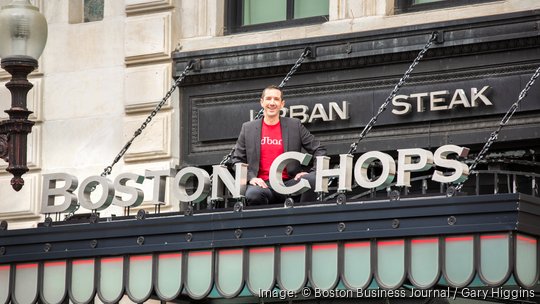
After working in Boston’s nightlife scene for over 20 years, including operating dbar for around 18 years, Piccini said he’s mostly only seen local nightclubs close, while most of the new growth is from national corporations opening new spots. Piccini said the city typically lacks the “soul” that he thinks nightlife needs.
Piccini said there are barriers to entry that hold back the city’s nightlife. Those includes the cost of real estate and licensing: If business owners can even find an available liquor license, they will usually end up paying six figures for it, Piccini said. A license can cost around $200,000 to $400,000.
Boston city councilors recently took some steps to expand the number of on-premises liquor licenses available, especially in neighborhoods populated by people of color where there are fewer late-night establishments. The first five licenses created will go to businesses in Nubian Square and Uphams Corner for minimal fees.
Another area Piccini said needs improvement is in fostering relationships with local neighborhood associations.
“Right now, the licensing board puts a lot of clout into the neighborhood association,” Piccini said. “So, if you have a local bar that’s open until midnight, and they want to change or upgrade to a 2 a.m. license with dancing and a deejay, they have to go in front of their neighborhood boards and request this. And that’s usually met with the biggest amount of resistance.”
Piccini said these board members are usually older professionals, not the young people Boston is trying to attract and retain. Young tech workers have been vocal with plenty of ideas on how to improve the city’s social scene.
A “late-night czar” could play an important role in understanding the local politics and helping applicants navigate this process, Piccini said.
Late-night hours for transportation, businesses
Vinny Lombardi, senior vice president of operations for the Lyons Group, said late-night transportation should be a key focus for the new role. Lyons Group owns Boston establishments like Lansdowne Pub, Loretta's Last Call and Bleacher Bar. He said many of their patrons and employees resort to using ride-share services to get home when venues close at 2 a.m.
Extending MBTA train hours is one possible solution that many have been suggesting for years. Another idea Lombardi floated was creating a shuttle that travels between neighborhoods like Back Bay, Seaport and Fenway, as well as to local universities.
Lombardi said allowing businesses to stay open later, even just until 3 a.m., would be beneficial for business owners and patrons alike. After experiencing the nightlife in cities like Chicago, Miami and New York, he thinks Bostonians would enjoy staying out later, if it was possible.
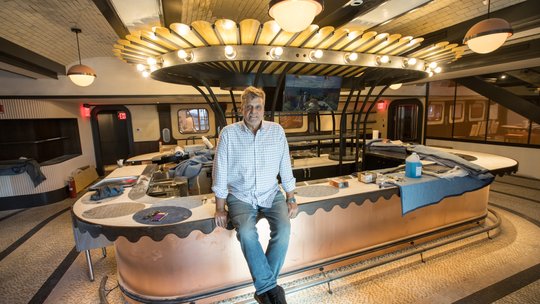
“When I was younger, we probably didn’t go out until midnight half the time. Next thing you know, an hour later, you’ve got people ripping drinks out of your hand. So just to have that extra hour would be awesome,” Lombardi said.
Creating this late-night culture has to include more than just places to drink and dance, Lombardi added. He also wants to see more late-night food options open past 10 p.m.
“I definitely think if Boston was to embrace (nightlife), and the people embrace it, it could be magical,” Lombardi said.
A social scene and economy for all Bostonians
Sheena Collier, founder and CEO of Boston While Black, was one of the Bostonians who helped advocate for a “late-night czar” in the minds of Idowu and Mayor Michelle Wu. She brought up the importance of revamping Boston’s image as a “boring” city during a mayoral candidate forum.
In addition to looking at the licensing processes and hours of operation, Collier said she’d like to see the new hire help ensure the cultures of all Boston residents are represented in its night-time economy.
“More places that speak to certain groups that are actually owned by certain groups, whether that’s Black or immigrant or LGBTQ,” Collier said.
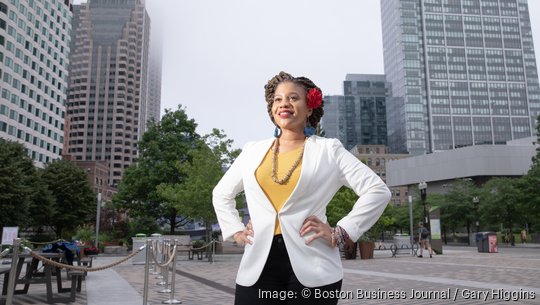
She added that it’s also important to make sure residents can find and access these places. Collier said just having a central source of information about happenings in the city could really improve people’s experiences.
Overall, Collier said, building Boston’s nightlife is about creating an economic strategy that helps the city, businesses and residents.
“I see a lot of potential in Boston. I think we have all the tools here. We definitely have the resources,” Collier said. “Now I think we have enough people in the city who really want it to grow and change and be the hub that it already touts itself to be. I think this is a really key part — this social, cultural part of the city.”
Subscribe to the Morning Edition or Afternoon Edition for the business news you need to know, all free.
